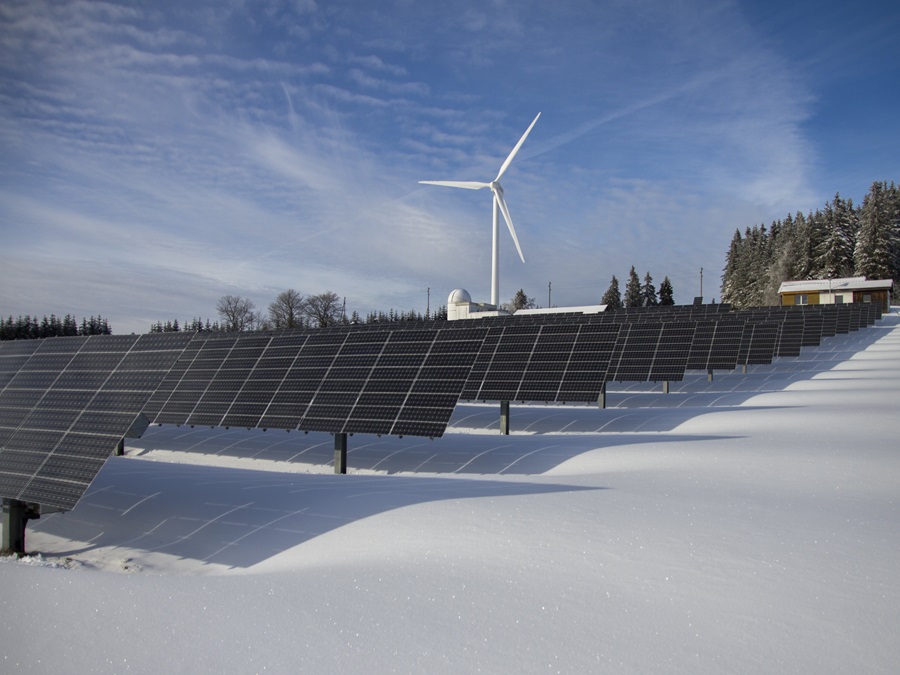The Future of Power: Exploring Alternate Fuels for Power Management
The 21st century faces a dual challenge: meeting the ever-growing demand for energy while simultaneously combating climate change. Our dependence on fossil fuels, the dominant source of energy today, is creating an unsustainable situation with detrimental environmental consequences. This necessitates a paradigm shift towards alternate fuels, a diverse range of energy sources beyond fossil fuels, offering a glimmer of hope for a cleaner and more sustainable future.
Embracing Renewables: A Sustainable Powerhouse
Renewable energy sources, like solar, wind, geothermal, and hydropower, have emerged as frontrunners in the alternate fuel race. These harness naturally occurring phenomena, replenishing themselves continuously, unlike finite fossil fuels. Let’s delve into the specific boons offered by each:
- Solar Power: Sunlight, Earth’s most abundant energy source, holds immense potential. Solar panels directly convert sunlight into electricity, offering a clean and versatile solution. Rooftop solar installations empower individuals and communities to become energy producers, fostering energy independence and resilience. Solar farms harnessing large-scale power generation hold the potential to supply entire grids.
- Wind Power: Wind turbines convert the kinetic energy of wind into electricity. Offshore wind farms, with their consistent wind speeds, boast high energy generation potential. Technological advancements have resulted in larger and more efficient turbines, reducing the cost of wind power and making it increasingly competitive with traditional sources.
- Geothermal Power: The Earth’s core generates immense heat, harnessed by geothermal power plants to produce electricity. This reliable and baseload source, unaffected by weather fluctuations, offers immense potential in regions with geothermal activity. Additionally, it boasts minimal land-use requirements, making it an attractive option for densely populated areas.
- Hydropower: The gravitational flow of water is a time-tested source of renewable energy. Hydropower plants, utilizing dams and turbines, have been a major contributor to global electricity generation. While large-scale dam projects face environmental concerns, smaller run-of-the-river projects and advancements in tidal and wave energy offer promising alternatives.
Diversifying the Mix: Beyond Renewables
Renewable energy sources, while crucial, aren’t the only players in the alternate fuel game. Other technologies offer valuable contributions:
Nuclear Power:
Nuclear fission, splitting atomic nuclei to release energy, offers a high-density, baseload source. While concerns surround safety and radioactive waste disposal, advancements in reactor technology and the development of smaller, safer designs are fostering renewed interest in nuclear power as a potential clean energy source.
Hydrogen Power:
Hydrogen, when used in fuel cells, generates electricity with water as the only by-product. While currently produced mainly from fossil fuels, advancements in green hydrogen production, utilizing renewable energy for electrolysis, pave the way for a clean and sustainable fuel source for transportation and stationary power generation.
Biomass:
Organic matter, like wood chips and agricultural waste, can be converted into biofuels like biodiesel and biogas. These can be used for transportation and power generation, offering a carbon-neutral option if sustainably sourced and managed.
Ushering in a Brighter Future: Challenges and Opportunities
The transition to alternate fuels presents several challenges. The intermittent nature of some renewables like solar and wind necessitates robust storage solutions and grid modernization. Investments in infrastructure and research are crucial to enhance efficiency and affordability. Social and political considerations, like ensuring equitable access to energy and addressing job displacement in fossil fuel industries, require careful planning and mitigation strategies.
Despite these challenges, the boons of alternate fuels outweigh the difficulties. Reduced greenhouse gas emissions, improved air quality, and energy independence are compelling reasons to embrace this transformation. Investing in alternate fuels fosters new industries, creating jobs and driving economic growth. Moreover, communities empowered by local renewable energy generation become more resilient and self-sufficient.
The future of power is bright, powered by a diverse mix of alternate fuels. Embracing this transition requires collaboration between governments, industries, and individuals. By acknowledging the challenges and harnessing the opportunities, we can create a sustainable energy future for generations to come.
Conclusion
The future of power is undeniably heading towards a diverse landscape fueled by alternate fuels. While challenges linger, the boons outweigh the difficulties. As we embrace this transition, fuelled by collaboration, investment, and innovation, we pave the way for a sustainable future where clean energy empowers communities, safeguards the environment, and propels economic growth. This shift isn’t just a possibility; it’s a necessity for the well-being of our planet and the generations to come. Let’s seize this opportunity to rewrite the narrative of our energy story, one fueled by hope, responsibility, and the boundless potential of alternate fuels.
Source:
- https://cleanpower.org/news/awea-wind-energy-now-top-source-of-renewable-electricity/
- https://images.pexels.com/photos/433308/pexels-photo-433308.jpeg?auto=compress&cs=tinysrgb&w=1260&h=750&dpr=1
- https://hydrogencouncil.com/en/
- https://www.hydropower.org/
- https://www.irena.org/Digital-Report/World-Energy-Transitions-Outlook-2022
- https://www.economist.com/the-world-ahead/2022/11/18/a-whole-new-global-energy-system-is-emerging

